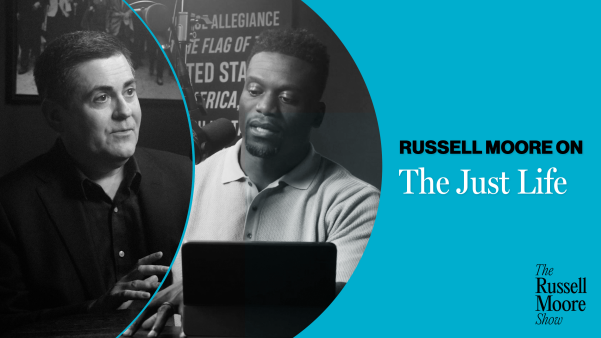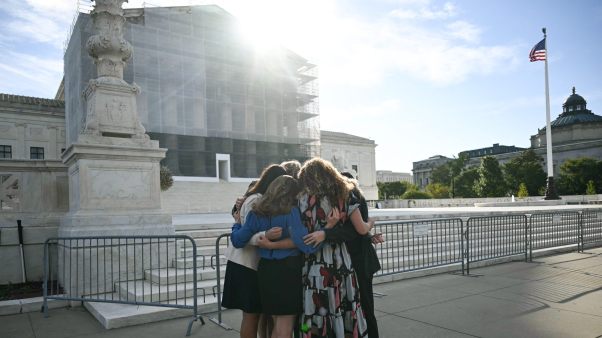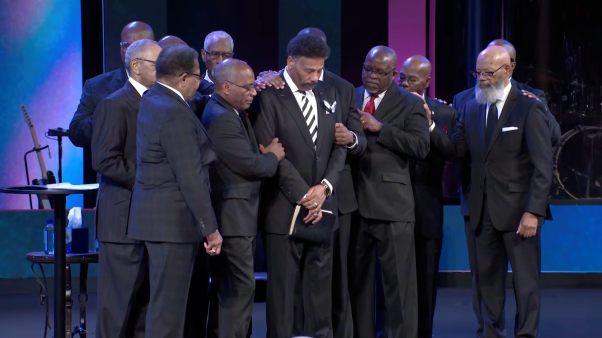Whether they had a ring by spring, never had a date, or were somewhere in between, alumni of Christian colleges and universities remember their experience of marriage culture on campus. This is likely true whether they graduated recently or as far back as the mid-20th century. Despite massive changes in gender roles, sexuality, and young-adult patterns of employment and family formation, marriage culture at Christian colleges and universities remains very strong. It’s as if there’s an underlying beat that still carries the song, even as the verses and harmonies change.
From Single to Serious: Relationships, Gender, and Sexuality on American Evangelical Campuses (The American Campus)
Rutgers University Press
256 pages
$38.95
Dana Malone’s book From Single to Serious explores relationships, gender, and sexuality on evangelical campuses, describing student and campus culture and how it impacts individuals. Malone, an independent scholar, has years of experience in student affairs work, including a doctoral study focused on students’ relational practices on evangelical campuses and how they differ from broader patterns of campus life in America. The study that resulted in this book follows on her doctoral work, broadening its scope to examine the pathways to intimate relationships. She conducted interviews and focus groups on two campuses, a small and large evangelical university. Readers will have to consider whether this small sample is truly representative. With the breadth and scope of schools affiliated with the Council for Christian Colleges and Universities, it is difficult to know how campus culture compares across regions and denominations.
Malone’s doctoral study of students in intimate relationships found that evangelical campuses foster a markedly different pattern of relationship building. A majority of students in relationships were not dating recreationally; they were dating with a clear objective in mind: finding a marriage partner. Most American college students are not interested in marrying during or shortly after college.
How do students move from singleness to serious relationships? Malone describes processes, rituals, and values that are important for educators to understand as they shape educational and co-curricular experiences for students. These students navigate a labyrinth of social codes, subtle cues, and contradictions. For men, this includes pleasing a woman’s friend group before even approaching the woman and showcasing his spiritual piety (as opposed to his athletic or physical strength, or sexual prowess). Women walk an even trickier tightrope, using their attire, words, body language, and behaviors to convey modesty and godly womanhood. For couples, hard choices abound: Should we be seen as a pair in public? Should we even use the word dating to describe our interactions? Missteps in this arena can end a relationship and damage future prospects.
Like gender, sex is a subject fraught with tension, which creates great challenges for authentic public or private dialogue. It’s not the ideal of sexual purity, per se, that causes these challenges, but purity culture, a social system of norms, rewards, and punishments that presents perfection as the sole ideal. Students reported to Malone that sex talk on campus, in public forums, doesn’t reach the level of authenticity or honesty that they need. The purity imperative means that students sometimes misrepresent their sexual pasts to friends and partners, and this leaves them uncertain about the place of physical attraction in an intimate relationship moving toward marriage. Women suffer shame and guilt not just around sexual sin but around the sheer fact of living in a body.
Purity culture also creates a push toward marriage as a redemptive state that can “erase” sexual sins in a relationship. Students described to Malone how they value traditional Christian morality but also want tensions and difficulties to be acknowledged and discussed on campus with informed, authentic dialogue, not platitudes or pat answers.
New Challenges
In some ways, Christian-college culture seems remarkably stable over many decades. But in other respects, students face new challenges in practicing traditional values in a new social context.
Malone describes gendered contradictions as even more difficult to navigate than sexual ones. Women face contradictory messages, such as traditional notions of femininity contrasted with mainstream norms that encourage women’s self-empowerment and choice-making. Women are encouraged toward leadership on campuses, but they must navigate leadership in ways that preserve men’s dominant power in intimate relationships. A woman who fully practices equality, leadership, and empowerment may find herself labeled “controlling” or “assertive” and suffer the penalties those labels carry. Surprisingly, the status of “girlfriend” actually frees women to take on more active roles within the relationship, as opposed to maintaining a more passive role while waiting for men to pursue them.
Women also face a contradiction in how they are valued for their spiritual and intellectual capacities but are also judged by their bodies, in both appearance (modesty) and activity (sexual practices). They feel obligated to remain pure and modest but also to demonstrate sexual desirability and availability. Each woman moving toward marriage must put herself out there as a future wife who would be sexually desirable, yet remain perfectly pure—and do this in a way that boosts the man’s confidence and calms his fears of rejection. Needless to say, women navigate this minefield with varying strategies and varying degrees of success. Malone didn’t describe this, but I would add that women are very likely to be co-earners (or lead earners) in marriage, even within evangelical families. This need to appear submissive and prospectively maternal while also preparing herself for a future in the workplace is another profound contradiction.
For their part, men face the challenge of being assertive and taking the lead but without being “creepy.” They also need to manage the presentation of physical strength, spiritual devotion, athleticism (for some), and the prospective sexuality of a loving husband—but without seeming aggressive, overly sexual, or in danger of violating purity. Again, Malone didn’t describe this, but I would add that men face an economic future unlike that of their parents. They are less likely to find stable career trajectories with employer-provided benefits, and they are less likely to purchase a home or have children at a young age.
With years of experience as a Christian college student and employee, Malone conducted this study as a “labor of love.” She challenges evangelical communities to consider how to honor their theological principles associated with gender, sexuality, and marriage while minimizing the negative impact of purity culture. Christian college and university administrators, staff, faculty, and student leaders will all benefit from considering the results of Malone’s study.
Jenell Paris is professor of anthropology at Messiah College and the author of The End of Sexual Identity: Why Sex Is Too Important to Define Who We Are (InterVarsity Press).










